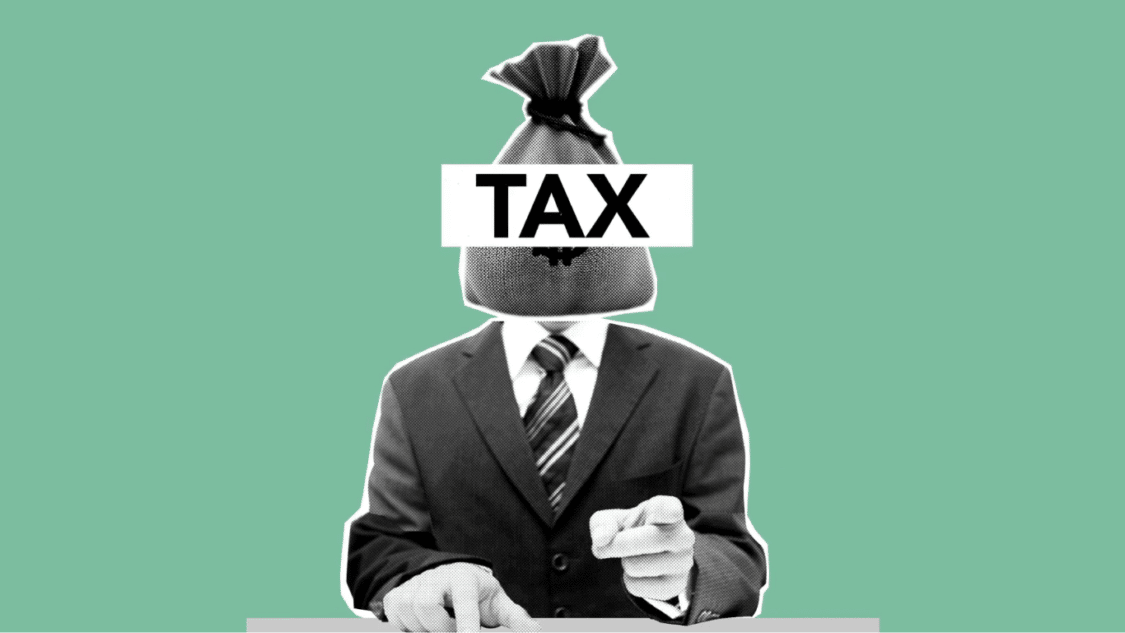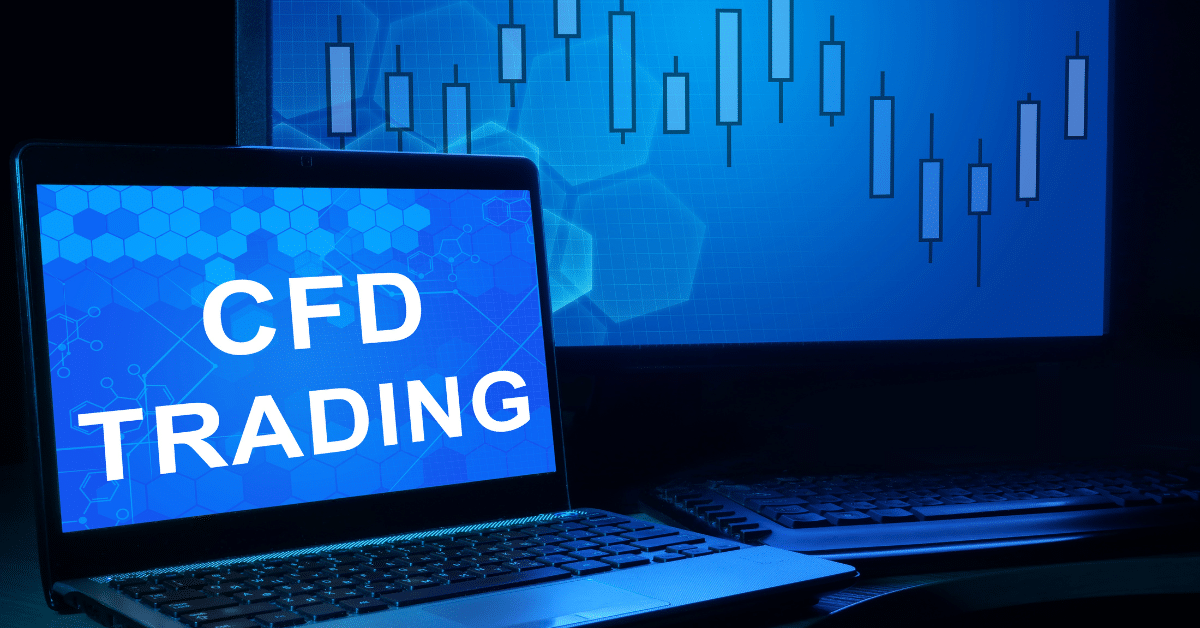- Are CFD’s subject to capital gains tax in the UK?
- How does HMRC classify CFD trading for tax purposes?
- What is the difference between the tax treatment of CFDs and other financial instruments in the UK?
- How are profits from CFD trading taxed in the UK, and what tax rates apply?
- Are losses from CFD trading tax deductible in the UK?
CFD trading, also known as Contract for Difference trading, is a popular form of derivative trading, allowing investors to speculate on underlying asset price movements without actually owning them. Instead, traders enter into a contract with a broker exchanging the difference in the value of an underlying asset between the time the contract is opened and closed. This type of trading has gained popularity recently, especially among retail traders, due to its flexibility and potential for high returns. This article covers how CFD tax is applied for both individuals and corporations, including tax rates, deductions, and planning strategies to reduce tax liability.
However, with the potential for high returns comes the potential for increased tax liabilities. In the United Kingdom, CFD trading is subject to taxation, just like any other form of income or investment. This means that profits from CFD trading are subject to capital gains tax, while losses can be used to offset gains and reduce tax liability.
Let’s explore the tax implications of CFD trading in the UK in more detail, including how CFD trading profits and losses are taxed, what tax rates apply, and how to report CFD trading activities to HM Revenue & Customs. We will also provide tips on minimizing your tax liability when CFD trading and discuss the importance of seeking professional tax advice if you are unsure about your tax obligations.
Are CFD’s subject to capital gains tax in the UK?
Yes, CFDs are subject to capital gains tax in the UK. This means that any profits from CFD trading are subject to capital gains tax, while losses can be used to offset gains and reduce tax liability. Capital gains tax is on the profits made from the sale or disposal of assets, including CFDs. In the case of CFD trading, the taxable gain is the difference between the opening and closing prices of the contract minus any fees or commissions paid to the broker.
The current capital gains tax rates in the UK are 10% for basic rate taxpayers and 20% for higher and additional rate taxpayers, with an annual exemption of £12,300 (as of the tax year 2022/23). It’s important to note that if you’re a frequent CFD trader or if CFD trading is your main source of income, you may be classified as a professional trader by HM Revenue & Customs. In this case, your profits and losses from CFD trading would be subject to income tax, rather than capital gains tax.
It’s always recommended to seek professional tax advice to ensure that you understand your tax obligations and to help you minimize your tax liability when CFD trading.
How does HMRC classify CFD trading for tax purposes?
HM Revenue & Customs (HMRC) classifies CFD trading based on the trader’s activity level and expertise for tax purposes. There are two main classifications: private investor and professional trader. Private investors are individuals who trade CFDs on a casual basis and do not derive their main source of income from trading. Private investors are subject to capital gains tax on any profits made from CFD trading, while losses can be used to offset gains and reduce tax liability.
On the other hand, professional traders trade CFDs regularly and derive their main source of income from trading. Professional traders are subject to income tax on their profits rather than capital gains tax. This means that any profits from CFD trading are taxed at the trader’s marginal income tax rate, which can be as high as 45% for the highest earners.
HMRC uses a number of factors to determine whether a trader should be classified as a private investor or a professional trader, including the frequency and volume of trades, the trader’s level of expertise and experience, the sophistication of their trading strategy, and the amount of time and effort they dedicate to trading.
The classification of CFD trading for tax purposes can be complex. Traders are advised to seek professional tax advice to ensure that they understand their tax obligations and to help them minimize their tax liability.
What is the difference between the tax treatment of CFDs and other financial instruments in the UK?
CFD tax treatment in the UK differs from other financial instruments such as stocks, bonds, and options. Here are some of the key differences:
- Capital gains tax vs. income tax: CFDs are subject to capital gains tax, while other financial instruments may be subject to income tax or stamp duty. For example, profits from buying and selling stocks may be subject to stamp duty, while profits from options trading may be subject to income tax.
- Offset of losses: With CFD trading, losses can be used to offset gains and reduce tax liability. This means that if a trader makes a loss on one CFD trade, they can deduct that loss from their gains on another trade, reducing their overall tax liability. However, other financial instruments can only offset losses fr gains made in the same tax year.
- Tax rates: The tax rates for CFD trading and other financial instruments may differ. For example, the current capital gains tax rates in the UK are 10% for basic rate taxpayers and 20% for higher and additional rate taxpayers. In comparison, the rates for income tax can range from 20% to 45% depending on the trader’s income level.
- Trading activity: HM Revenue & Customs may classify traders differently based on their activity level and expertise. As mentioned earlier, CFD traders may be classified as private investors or professional traders, depending on their level of trading activity and experience. This can have an impact on the tax treatment of their trades.
Traders need to understand the tax treatment of the financial instruments they are trading, as this can significantly impact their overall profits and tax liability. Seeking professional tax advice can help traders navigate complex tax rules and regulations and ensure they meet their tax obligations.
How are profits from CFD trading taxed in the UK, and what tax rates apply?

Profits from CFD trading in the UK are subject to capital gains tax, which is a tax on the profits made from the sale or disposal of assets. The amount of tax owed depends on the level of profit earned and the taxpayer’s tax bracket.
The current capital gains tax rates in the UK for the tax year 2022/23 are:
- 10% for basic rate taxpayers, which applies to taxable gains up to £50,270
- 20% for higher rate and additional rate taxpayers, which applies to taxable gains above £50,270
It’s important to note that there is an annual capital gains tax exemption, meaning that individuals are only taxed on the profit made above a certain threshold. For the tax year 2022/23, the annual exemption is £12,300.
In addition to capital gains tax, traders who engage in CFD trading as their main source of income may also be subject to income tax on their profits. In this case, the profits would be taxed at the trader’s marginal income tax rate, ranging from 20% to 45%, depending on their income level.
Traders must keep detailed records of their CFD trading activity, including profits and losses, to accurately calculate their tax liability. Seeking professional tax advice can also help ensure that traders meet their tax obligations and minimize their tax liability.
Are losses from CFD trading tax deductible in the UK?
Yes, losses from CFD trading in the UK are tax-deductible, and can be used to offset gains and reduce tax liability. This means that if a trader makes a loss on one CFD trade, they can deduct that loss from their gains on another trade, reducing their overall tax liability. Losses can only be offset against gains made in the same tax year. Any unused losses can be carried on to future tax years and used to offset future gains.
Traders should keep detailed records of their CFD trading activity, including profits and losses, to accurately calculate their tax liability. Seeking professional tax advice can also help ensure that traders are meeting their tax obligations and maximizing their tax deductions.
Do CFD traders need to register for VAT and pay VAT on their trading activities?
Generally, CFD traders in the UK are not obligated to register for VAT (Value Added Tax) or pay VAT on their trading activities. This is because CFD trading is considered a financial service generally exempt from VAT. There are some exceptions to this rule. For example, if a CFD trader is also providing investment advice or related services subject to VAT, they may need to register for VAT and charge VAT on those services.
Traders must consult with a tax professional or HM Revenue & Customs (HMRC) to determine if they need to register for VAT or pay VAT on any trading activities. Noncompliance with VAT requirements can result in penalties and other legal consequences.
What are the tax implications of holding a CFD position for an extended period of time?
The tax implications of holding a CFD position for an extended period of time in the UK depend on the type of CFD trader and the specific circumstances of the trade.
For private investors who hold a CFD position for an extended period of time, any profits made when the position is closed will be subject to capital gains tax. As mentioned earlier, the current capital gains tax rates in the UK for the tax year 2022/23 are 10% for basic rate taxpayers and 20% for higher and additional rate taxpayers.
However, suppose a CFD trader is classified as a professional trader by HM Revenue & Customs (HMRC). In that case, any profits made from holding a CFD position for an extended period of time may be considered trading income and subject to income tax, which can be taxed at a higher rate than capital gains tax.
In addition, if a CFD trader holds a position that pays dividends, they may be subject to dividend tax. The UK’s current dividend tax rates for the 2022/23 are 7.5% for basic rate taxpayers, 32.
How does the tax treatment of CFD trading differ for individuals and corporations in the UK?
The tax treatment of CFD trading differs for individuals and corporations in the UK.
For individuals, profits from CFD trading are subject to capital gains tax and potential income tax if the trader is classified as a professional trader. Losses from CFD trading can be used to offset gains and reduce tax liability.
For corporations, profits from CFD trading are subject to corporation tax, which is currently 19% in the UK. However, corporations may also be eligible for certain tax deductions and allowances that can reduce their tax liability.
In addition, the tax treatment of CFD trading may also vary depending on the company’s specific corporate structure and legal status. For example, a company classified as a trading company may be eligible for certain tax reliefs and allowances that are not available to investment companies.
It’s important for individuals and corporations engaged in CFD trading to consult with a tax professional or HM Revenue & Customs (HMRC) to ensure that they are meeting their tax obligations and maximizing their tax deductions. Noncompliance with tax requirements can result in penalties and other legal consequences.
Can CFD traders use any tax planning strategies to minimize their tax liability in the UK?

There are several tax planning strategies that CFD traders in the UK can use to minimize their tax liability. Here are a few:
- – CFD traders can use tax-efficient accounts, such as ISAs (Individual Savings Accounts) and SIPPs (Self-Invested Personal Pensions), to reduce their tax liability. Any profits made within these accounts are typically not related to income tax or capital gains tax.
- – CFD traders can offset any gains by harvesting tax losses. This involves selling losing positions to offset gains made on winning positions. The losses can reduce the trader’s taxable income or capital gains.
- – CFD traders can spread their trades over multiple tax years to take advantage of the annual capital gains tax allowance, which is currently £12,300 for the tax year 2022/23. By spreading their trades over multiple years, traders can avoid exceeding the annual allowance and reduce their tax liability.
- – If a CFD trader earns significant profits, they may benefit from incorporating their trading activities. As a corporation, they may be eligible for certain tax deductions and allowances that can reduce their tax liability.
- – CFD traders should consult with a tax professional or HM Revenue & Customs (HMRC) to ensure they meet their tax obligations and maximize their tax deductions. A tax professional can provide tailored advice based on the trader’s specific circumstances and goals.
It’s important to note that tax planning strategies should always be considered with other factors, such as investment goals and risk management strategies.
What is a cryptocurrency hot and cold wallet?

